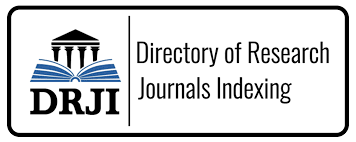Pengaruh Pendidikan dan Lama Bekerja Terhadap Kualitas Bekerja Pegawai Pada Pengadilan Tata Usaha Negara Palembang
DOI:
https://doi.org/10.31851/jmwe.v22i2.16523Abstract
ABSTRAK
Tujuan penelitian ini adalah untuk menguji hipotesis bahwa kualitas kerja yang dihasilkan oleh pegawai Pengadilan Tata Usaha Negara Palembang dipengaruhi oleh tingkat pendidikan dan lama masa kerja. Partisipan penelitian ini adalah pegawai yang bekerja di Pengadilan Tata Usaha Negara Palembang. Sebanyak 45 responden dipilih sebagai sampel dari masing-masing empat populasi untuk menggunakan metode sampel jenuh. Metode analisis data penelitian ini meliputi regresi linier dasar dan regresi linier berganda. Kualitas kerja merupakan karakteristik endogen, sedangkan pendidikan dan masa kerja merupakan faktor eksogen. Hasil pengujian hipotesis menunjukkan bahwa pendidikan dan masa kerja secara bersama-sama memiliki pengaruh terhadap kualitas kerja, terdapat hubungan yang kuat antara kedua faktor tersebut dengan kualitas kerja. Hubungan tersebut cukup kuat dan signifikan, sebagaimana ditunjukkan oleh hasil uji regresi linier sederhana dan ganda, yang menunjukkan bahwa masa kerja dan pendidikan memiliki pengaruh terhadap kualitas kerja yang dihasilkan oleh pegawai Pengadilan Tata Usaha Negara Palembang.
Kata Kunci: Lama Bekerja, Pendidikan, Kualitas Kerja.
ABSTRACT
The purpose of this study was to test the hypothesis that the quality of work produced by employees of the Palembang State Administrative Court is influenced by the level of education and length of service. The participants of this study were employees working at the Palembang State Administrative Court. A total of 45 respondents were selected as samples from each of the four populations to use the saturated sample method. The data analysis methods of this study include basic linear regression and multiple linear regression. Work quality is an endogenous characteristic, while education and length of service are exogenous factors. The results of the hypothesis test show that education and length of service together have an influence on work quality, there is a strong relationship between the two factors and work quality. The relationship is quite strong and significant, as shown by the results of simple and multiple linear regression tests, which show that length of service and education have an influence on the quality of work produced by employees of the Palembang State Administrative Court
Keywords : Length of Employment, Education, Quality of Work.
References
Adam, R., Rismansyah, R., & Darmawati, T. (2023). Pengaruh Pengalaman Kerja dan Kualitas Sumber Daya Manusia Terhadap Produktivitas Kerja Pada PT. Thamrin Brothers Palembang Cabang Sako. Innovative: Journal Of Social Science Research, 3(6), 2575-2587.
Adhari, I. Z. (2020), Optimalisasi Kinerja Karyawan Menggunakan Pendekatan Knowledge Management & Motivasi Kerja. Pasuruan, Jawa Timur: CV. Penerbit Qiara Media.
Ariono, Imam (2017) "Analisis Faktor-Faktor yang Mempengaruhi Persepsi Atas Informasi Akuntansi Keuangan Serta Keberhasilan dalam Mengelola Perusahan Kecil dan Menengah (Studi Empiris Pada UMKM Industri Makanan di Wonosobo)." Journal of Economic, Management, Accounting and Technology
Eko dan Rismansyah (2019), Analisis Studi Kelayakan Bisnis pada Usaha Mainan Anak Ditinjau dari Aspek Keuangan. Journal of Vision and Ideas (VISA) 3.1 (2023): 288-295.
Flippo, E. (2019). Personel Management (Manajemen Personalia), (7th ed.). Jakarta : Erlangga. Hal 07.
Marimba, D.A. (2021). Faktor-faktor determinan dalam pendidikan (studi tentang makna dan kedudukannya dalam pendidikan). Al-Ta'dib, 8 (2), 1-17.
Martoyo (2020). Manajemen Sumber Daya Manusia. Yogyakarta : BPFE.
Sugiyono (2018). Metode Penelitian Kuantitatif, Kualitatif dan R&D. Bandung; Cv Alfabeta
Supriyatna, Y. (2020) Tingkat Pendidikan Dan Masa Kerja Terhadap Kinerja Karyawan Pt. Perima Makmur Rotokemindo. Jurnal Manajemen
Downloads
Published
Issue
Section
License
Copyright (c) 2025 Jurnal Media Wahana Ekonomika

This work is licensed under a Creative Commons Attribution-NonCommercial 4.0 International License.
The copyright of the received article shall be assigned to the publisher of the journal licensed under a Creative Commons Attribution-NonCommercial 4.0 International License in line with the license, authors and any users (readers and other researchers) are allowed to share and adapt the material only for non-commercial purposes. In addition, the material must be given appropriate credit, provided with a link to the license, and indicated if changes were made. If authors remix, transform or build upon the material, authors must distribute their contributions under the same license as the original.






















